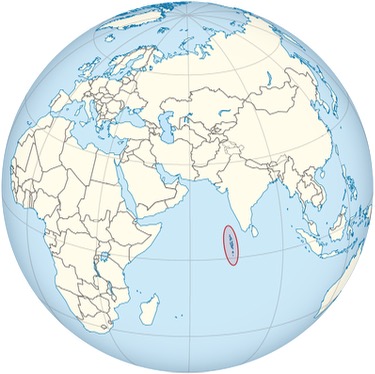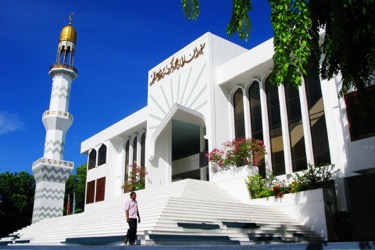IARJ@Work: Top IARJ journalists share reporting ideas in international seminar

In December, two of the IARJ’s active members shared their expertise in covering religion through an international program helping journalists from the Maldives to develop their own best practices in covering this complex realm of news.

Religion reporting is a vital issue in the Maldives, the island nation best known around the world for its picture-perfect beaches and luxurious resorts. In contrast to the images in tourism brochures, residents’ daily lives have been unsettled by a series of turbulent events in recent years, especially a catastrophic 2004 tsunami. During years of rebuilding, political instability has sparked new nationwide regulations tightening public dissent. Journalists face challenges, including death threats, according to international nonprofit groups that monitor press freedom around the world.
The December seminar, which was held via Skype, featured IARJ Executive Director Endy Bayuni, who is based in Indonesia as the Editor-in-Chief of the influential Jakarta Post newspaper. Joining him was IARJ founding member Waqar Gillani, special correspondent for the News International group in Pakistan.
Waqar and I hope that we were able to share with these journalists our own useful tips on reporting about religions,
Bayuni said after the session. They asked many questions, which is a good indication that the session was useful.

The Maldives island chain represents one of the smallest Asian populations—less than half a million citizens. For many centuries, that population has been mainly Muslim. In recent decades, Islam was declared the official state religion. That made Bayuni and Gillani perfect participants in the roundtable discussion with journalists, since both Pakistan and Indonesia are largely Muslim countries.
Sponsoring this gathering of journalists was Media in Cooperation and Transition (MiCT), a German non-profit organization that helps with media development in crisis regions around the world. At the MiCT headquarters in Berlin, an international team of more than 20 full-time staff members coordinates the nonprofit’s activities in 15 different countries, according to MiCT’s description of its work. All projects are implemented in close cooperation with our partners on-site,
MiCT says.
That approach parallels the IARJ’s own commitment, since its founding in 2012, to improving the profession’s overall standards by building peer-to-peer relationships between journalists. As the IARJ began its work, religion scholar Karen Armstrong stressed the importance of that approach: It’s terrific to have journalists meet together to start to develop an ethic about how religion is reported. It’s absolutely terrific.
IARJ annual conferences feature panels, workshops and on-site visits that encourage journalists to work together on developing best practices. In addition to this Skype workshop with Bayuni and Gillani, IARJ webmasters Larbi Megari in Algeria and Elisa DiBenedetto in Italy are frequently called on by journalists around the world to appear by Skype or in person for journalist-to-journalist discussions about emerging issues.
(Note to readers: Would you like to invite an IARJ journalist to talk with your group? Contact us with your inquiries, please.)
Care to read more?
We invite anyone interested in the IARJ to continue watching our website and our Twitter feed for more reflections on this global conference over the next few weeks. If you are a journalist with a focus on covering religious and cultural diversity, then please consider joining our organization.
